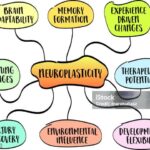Relationship trauma healing starts when you stop mistaking chaos for care. Discover why narcissistic love feels so familiar—and how to finally break free.

It always starts with a feeling — something warm, haunting, and strangely safe.
The way they listen. The way they mirror your words back to you like they’ve known you forever.
You tell yourself you’ve finally found someone who sees you — not just the surface, but the spaces beneath your skin that no one ever cared to explore.
It feels familiar.
But that’s the danger.
Because what feels like comfort at first is often a memory wearing new clothes.
You don’t realize it yet, but your body does.
It remembers the tone of love that required shrinking. The kind of closeness that came with conditions. The praise that always hid a test.
So when this new affection arrives wrapped in the same rhythm, your nervous system calls it home.
But home isn’t always safe.
Sometimes home is just the first place you learned to survive.
Here’s the contradiction most people never see:
It’s not that people with narcissistic traits choose fragile partners — they’re drawn to familiar ones.
And we, unknowingly, are drawn to them too.
They don’t hunt for wounds; they harmonize with them.
They sense the echo of unmet needs — the need to be chosen, to be approved of, to finally feel “enough.”
And they play to that rhythm with unsettling precision.
Because this isn’t a new song.
It’s an old one.
The same melody your childhood once hummed, now replayed in the body of someone who swears they love you.
The Echo of Childhood — How Your Nervous System Mistakes Chaos for Care
It’s not that you’re addicted to toxic love.
You’re addicted to what feels familiar.
Think of it like this — your body is a radio that learned one frequency as “home.”
Maybe that frequency was tension. Or walking on eggshells. Or earning love through good behavior.
So when peace finally shows up — soft, steady, uneventful — it doesn’t feel peaceful.
It feels foreign. Almost boring.
Your nervous system can’t relax into it, because it’s still tuned to chaos.
That’s what no one tells you:
The body doesn’t seek what’s good for it. It seeks what it knows.
It craves predictability more than peace.
So if you grew up in uncertainty, you’ll unconsciously reach for what matches that rhythm — even if it hurts.
That’s why a narcissist’s affection feels magnetic at first.
It mirrors the same highs and lows your system once called “normal.”
The same waiting for approval. The same walking on emotional glass.
It’s not love you’re craving — it’s recognition.
The kind that whispers, this is how connection has always felt.
Real healing starts when you stop mistaking the familiar for safe.
When you realize that peace might feel dull at first — not because it’s wrong, but because it’s new.
When Praise Starts to Feel Like Permission
Think of a compliment like a charger.
You plug it in because it gives energy — but only if the other end fits your device.
A narcissist knows this instinctively. They test which socket you’ll open by offering small jolts of validation.
“You’re different from other people.”
“You’re the only one who really gets me.”
“You’re so strong — I don’t know how you do it.”
It sounds like kindness. But really, they’re scanning for access points.
They’re not admiring you — they’re observing you.
They’re learning what lights you up, so they can decide when to unplug you later.
That’s the quiet genius of emotional manipulation: it doesn’t start with cruelty.
It starts with attunement. With paying attention so closely, it feels like intimacy.
You think, finally, someone who sees me.
But what they really see are your tender spots — and how to make them flinch.
The contradiction is this:
It’s not about boundaries being broken.
It’s about boundaries being studied.
And when someone studies you long enough, they don’t have to cross your lines — they just learn how to move the line closer to them.
That’s why their praise feels so electric in the beginning — and so imprisoning later.
Because real love charges you without keeping the cord.
The Courtroom of Your Past
Some people call it attraction.
But what we often call attraction is really recognition.
The moment someone mirrors the emotional texture of our childhood — the same temperature of love, the same ache of being almost seen — something ancient in us sits up and whispers, “Home.”
Not because it’s safe.
But because it’s familiar.
As children, we learn that love has rules. That to be approved of, we must perform a version of ourselves that wins the room. The quiet one. The helper. The achiever. The forgiver.
That script becomes our blueprint.
So when we grow up, we don’t fall for people — we fall for patterns.
We call it chemistry, but it’s actually history.
Healing sometimes feels like sitting in a courtroom where your adult self and your inner child are both on trial — accusing each other of betrayal.
The child says, “You promised to protect me.”
The adult says, “You never let me grow.”
And somewhere between their arguments, the judge — your consciousness — finally sees it:
Neither of them is guilty.
They just keep replaying the same case, hoping for a different verdict.
This is why you keep choosing people who wound you in familiar ways.
You’re not choosing wrong.
You’re choosing familiar.
You’re trying to finish a story your younger self couldn’t end.
You think, “Maybe this time, if I love better, if I stay longer, if I fix harder, it’ll finally turn out right.”
But it never does — because love can’t heal what it didn’t break.
Emotional healing begins when you stop seeking resolution through repetition.
When you stop trying to rewrite the same story — and instead, let it end.
Sometimes the most loving thing you can do for your inner child
is to close the book she’s been reading aloud for decades
and whisper, “We’re safe now. The trial is over.”
Tending the Garden You Once Abandoned
Healing doesn’t always look like distance.
Sometimes it looks like turning toward the part of you that keeps running back.
The narcissist didn’t create your middle world — they mirrored it.
They reflected the unfinished story of your younger self, the one who learned to mistake survival for love.
And so, every time you chase closure through another person,
you’re not chasing them — you’re chasing you.
Healing is less like cutting someone off
and more like learning to raise the child inside you the way they should’ve been raised the first time.
It’s sitting with the scared parts instead of outsourcing them.
It’s feeding the hunger for approval with self-respect.
It’s letting the one who once begged to be chosen finally choose themselves.
Because the truth is, you don’t heal by avoiding narcissists — you heal by becoming the person your younger self needed when they first met one.
Healing is reparenting, not resisting.
It’s the slow, patient act of teaching your nervous system that peace doesn’t mean silence — it means safety.
It’s saying, “You don’t have to perform anymore.”
It’s giving yourself the tenderness you kept earning from the wrong hands.
And maybe that’s what growing up really is — not building a new self,
but finally coming home to the one you left behind when love first felt like danger.
I write stories about creation — not just in the cosmic sense, but the human one. About how small things, and even smaller moments between people, become infinite when touched by belief and love.



